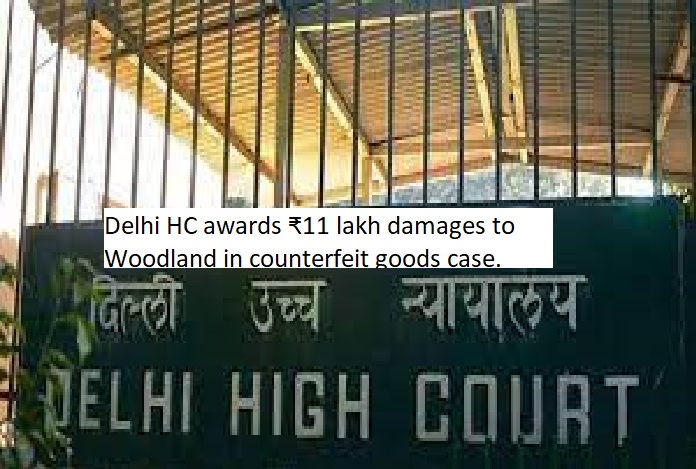


The Delhi High Court, in a recent judgment, underscored the detrimental impact of the sale of counterfeit goods on public interest and the potential consequences for a brand. Justice Prathiba M Singh delivered this observation while adjudicating a trademark infringement case, wherein Woodland, a well-known brand, was awarded Rs. 11 lakhs in damages and costs.
The court emphasized that the sale of counterfeit products not only harms consumers but also poses a significant threat to the integrity of trademarks and brands. Justice Singh pointed out that such illicit practices could render a trademark or brand entirely worthless. In this particular case, the infringing entity, M/s Sahara Belts, was accused of marketing and selling counterfeit products using Woodland's registered trademark.
The judgment highlighted the severe impact of selling counterfeit goods on the genuine market. Large-scale piracy of a brand, as seen in this case, diminishes the value of the brand and erodes consumer trust in authentic products. The court's verdict reflects an understanding of the broader implications of counterfeiting, extending beyond mere financial losses for the affected brand.
Woodland's lawsuit against M/s Sahara Belts, operated by Javed Alam in Sadar Bazar, alleged the sale of counterfeit goods such as belts, belt buckles, and wallets bearing the registered 'WOODLAND' mark. The court found that the use of Woodland's mark and logo on substandard products not only infringed upon statutory and common law rights but also jeopardized the brand's equity.
The court's decree in favor of Woodland included a permanent injunction against M/s Sahara Belts. The defendant was restrained from manufacturing, selling, offering for sale, or advertising any products bearing the 'WOODLAND' word mark, 'TREE' device, 'WOODLAND' label, or any other mark identical or deceptively similar to Woodland's mark. The judgment acknowledged the severity of the infringement, with over 11,000 counterfeit products seized from the defendant's premises.
The court's decision sends a strong message about the need to protect intellectual property rights and combat the proliferation of counterfeit goods. It recognizes that counterfeiting extends beyond mere infringement; it can undermine the very essence of a brand and its reputation. The damages awarded serve as a deterrent, signaling that the legal system takes a firm stand against activities that compromise the integrity of trademarks and brands.
In conclusion, the Delhi High Court's judgment in the Woodland case reaffirms the importance of safeguarding intellectual property rights, emphasizing the broader societal implications of counterfeiting. It underscores the court's commitment to preserving public interest and maintaining the integrity of brands in the face of illicit practices that seek to exploit established trademarks for personal gain.
TAGS: Delhi High Court Counterfeit goods Public interest Trademark infringement Damages Woodland Justice Prathiba M Singh Brand equity